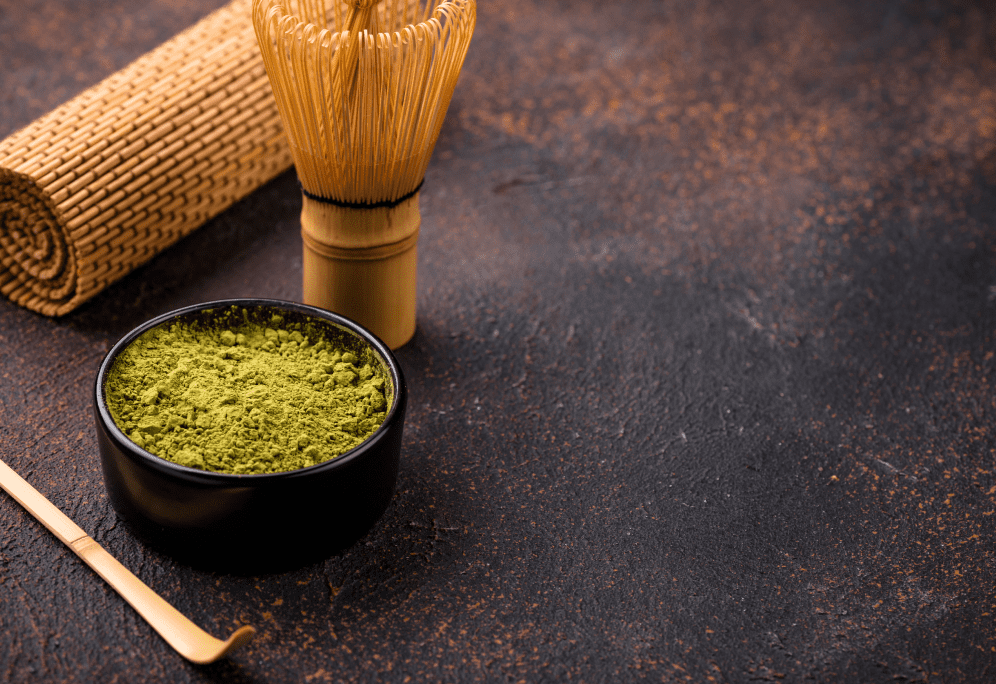While green tea is one of the most popular beverages worldwide, black tea is more common in the West – but that may be changing. An increasing amount of scientific research on the health benefits of green tea is raising awareness of its medicinal uses, especially given the growing prevalence of lifestyle-related illnesses, and functional beverages featuring green tea are now increasingly popular among millennials.[This article, “Green Tea Offers Powerful Health Benefits” was originally published in HealthXWire]
Green, black, and oolong teas are all made from the leaves of the Camelia sinensis plant, which grows as large as a shrub or a tree throughout Asia and parts of the Middle East and Africa. Green tea is prepared from unfermented leaves, giving it high amounts of polyphenols. These have antioxidant effects that are said to be greater than vitamin C.
Among green tea’s many reported benefits are reduction of weight, improved cognition, lower risk of developing heart disease and cancer, and promotion of healthy bones.
Weight reduction health benefits
A study published in the Journal of the American College of Nutrition documented the presence of catechins in green tea, which are powerful antioxidants. The most important of these is EGCG (epigallocatechin gallate), a substance that can boost metabolism. To burn fat, the body must first break it down in the fat cell and move it into the bloodstream. Animal studies suggest that the EGCG in green tea can aid this process by boosting the effects of some fat-burning hormones, including epinephrine. Also, caffeine and EGCG, both of which are found in green tea, may have a synergistic effect, together promoting fat loss.
In addition, the American Journal of Clinical Nutrition published a study showing that men who took green tea extract before exercise burned 17% more fat than men who didn’t take the supplement.
Working memory
The caffeine in green tea increases feelings of alertness, but because green tea has a far lower concentration of caffeine than coffee, drinking it is a way to take advantage of caffeine without experiencing many of coffee’s less desirable side effects, such as the jitters. L-theanine is also an essential substance in green tea; it is thought to help alleviate stress and improve attitude. The combination of caffeine and L-theanine has been shown to improve brain function by enhancing working memory, as well as lowering levels of stress.
The effects of drinking green tea on cognitive ability were also the subject of a short study published in 2019. The researchers concluded that individuals who consumed green tea on a daily basis had greater cognitive performance than those who did not. And a meta-analysis of 21 research studies published in 2017 found that consuming green tea had positive effects on both cognitive performance and overall cognitive ability.
Lower risk of heart disease
According to a 2020 study published in the European Journal of Preventive Cardiology, green tea could help reduce the risk of heart disease and stroke. Researchers found that drinking green tea three or more times per week can significantly improve overall heart health due to a particular type of antioxidant called polyphenols. These have been shown to reduce inflammation and improve cell function in the heart and blood vessels.
Another study of 40,000 Japanese adults found that participants who drank more than five cups of green tea today had a 26% lower risk of death from heart attack or stroke than people who drank less than one cup of tea per day.
Research also shows that people who drink green tea have a lower risk of cardiovascular disease. Research published in the American Journal of Medicine suggests that green tea may lower total and LDL cholesterol, as well as protect the LDL particles from oxidation.
And according to the British Heart Foundation, a compound called EGCG found in green tea can break up and dissolve potentially dangerous protein plaques found in blood vessels. To get the effective amounts of ECGC into the bloodstream, one would need to drink enormous quantities of it, which is not what researchers are recommending. Instead, they are looking at other ways that the compound could be used, including changing the chemical structure of EGCG, making it easier to be absorbed from the stomach and more resistant to the metabolism. Professor Jeremy Pearson, Associate Medical Director of the British Heart Foundation says, “By engineering the molecule slightly, we might be able to make new medicines to treat heart attack and stroke.”
Lower risk of cancer
Studies have shown that nations like Japan, where green tea is consumed on a daily basis, tend to have lower incidences of cancer. Initial findings from clinical trials point to the possibility that the polyphenols found in tea, and particularly green tea, might play a significant part in the prevention of cancer. Researchers at Mount Sinai Hospital also say that polyphenols may not only inhibit the growth of malignant cells but also might assist in destroying cancerous cells.
In one study, researchers found that men with bladder cancer who drank green tea had a better 5-year survival rate than those who did not drink green tea. Studies in animals and test tubes also suggest that polyphenols in tea inhibit the growth of breast cancer cells. In one study of 472 women with various stages of breast cancer, researchers found that women who drank the most green tea had the least spread of cancer. Still, they caution that people with cancer should consult with their doctor before adding tea to their regimen.
Improved bone health
Biological age, the inflammatory process, and age-related estrogen shortage in women contribute to bone turnover, and green tea polyphenols (GTPs) may help reduce this loss. Findings indicate that green tea catechin (a phenol and antioxidant belonging to the flavonoid chemical family) may improve bone metabolic problems by restoring bone mineral composition, stiffness, and calcium levels. One of the catechins found in green tea of special relevance is called epigallocatechin (EGC). Research shows that it enhances the activity of an enzyme essential for bone development and strength, and that EGC increases bone hardening.
Commercially available green tea
Green tea of high quality has a wide variety of flavor profiles, from sweet, flowery, and buttery, to nutty, vegetal, marshy, tropical, or oceanic. Manufacturers promote green tea as a dietary supplement, claiming that it helps control blood sugar, cholesterol, blood pressure and weight. They often suggest having between three and five cups per day.
Since most green teas contain caffeine, it might keep some people awake if they drink it before bed. Some manufacturers sell decaffeinated green tea, but it’s uncertain whether removing the caffeine could reduce the possible antioxidant effects.
EGCG, the helpful substance in green tea, is available as green tea extract. This is taken as a supplement in liquids, tablets, or capsules. Nonetheless, manufacturers don’t have to prove that herbal supplements are safe or that they have any health benefits. It is recommended that individuals interested in adding green tea to their diets seek advice from their health care professionals before beginning a green tea regimen.
Important Note:
This article does not contain health or medical advice, and the information contained herein is not intended to diagnose, prevent, treat or cure any disease, condition or health problem. Before beginning any program of diet, nutrition or supplementation, seek the advice of a competent healthcare professional in order to determine the possible effects on your health, given your individual sensitivities, needs and objectives.





